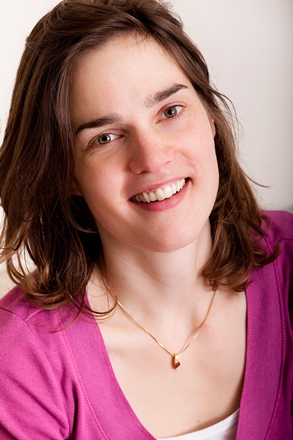Onderzoeksbeurzen van 100K voor FEB’s Jutta Bolt: de toekomst van landbouw en inkomensongelijkheid in Afrika

Is de toekomst van de voedselzekerheid in Afrika het meest gebaat bij kleine, of bij grootschalige landbouw? Hoe en waarom ontwikkelt inkomensongelijkheid zich in Afrikaanse landen? Dit zijn de onderwerpen van twee grootschalige onderzoeken van FEB econoom Jutta Bolt in samenwerking met onderzoekers van onze partneruniversiteit in Lund, Zweden. Voor beide driejarige projecten, die deze maand beginnen, heeft zij in totaal € 100,000 ontvangen.
Bolt’s project “Mapping the development of large-scale farming in 20th century Africa: Kenya, Malawi, South Africa and Zimbabwe compared”, samen met Erik Green (Lund) wordt gefinancierd door de Swedish Research Council. De beurs voor het tweede project," Longitudinal Inequality trends ", samen met Ellen Hillbom (Lund) wordt verstrekt door de Wallander Foundation (Handelsbanken).
Landbouw
Bolt: "Volgens steeds meer economen is een succesvolle toekomst van de Afrikaanse landbouw gebaat bij een focus op grootschalige landbouwproductie. Eerder werd deze sector als inefficiënt gezien en alleen bestaand bij de gratie van overheidssubsidies en uitbuiting van lokale arbeidskrachten. Maar als we een écht antwoord willen, moeten we eerst de ontwikkelingstrajecten van grootschalige landbouw in Afrika's verleden en heden in kaart brengen."
Bolt en Green gaan tijdreeksen construeren die onderzoek mogelijk maken naar structurele verandering, de ontwikkeling van de werkgelegenheid, de rol van de staat, uitbuiting van arbeiders, de prestaties, landgebruik en loonverdeling.
De focus ligt op Kenia, Malawi, Zuid-Afrika en Zimbabwe. "Deze landen hebben een uiteenlopende economische en politieke geschiedenis", zegt Bolt, "maar wat ze gemeen hebben, is het bestaan van een grote agrarische sector die een belangrijke rol heeft gespeeld in de economie in de twintigste eeuw."
Inkomensongelijkheid
Economen en economische historici breken zich al decennialang het hoofd over het hoe en waarom van inkomensongelijkheid en de verschillen tussen landen: van de pioniers in de jaren 1950 tot de recente, tot nadenken stemmende, publicatie van Piketty in 2014. Tot nu toe is er echter geen consensus.
Bolt: "De meeste studies richten zich op ongelijkheidstrends in de ontwikkelde wereld en ook groeit inmiddels de literatuur over Azië en Latijns-Amerika. De enige regio die nog niet wordt meegenomen in het debat over het begrijpen van de historische oorsprong van de ongelijkheid, is Afrika. Ons project is een unieke en nieuwe poging om een dergelijk onderzoek wel te doen."
► Voor meer informatie, neem contact op met dr. Jutta Bolt
________________________________________________
> Meer nieuws van de Faculteit Economie en Bedrijfskunde
> FEB-experts in de media


| Laatst gewijzigd: | 29 februari 2024 10:02 |
Meer nieuws
-
19 april 2024
Nieuwe scriptieprijs voor masterstudenten Economie en Bedrijfskunde
Hoe kunnen we economie en bedrijfskunde studenten prikkelen om in hun masterscriptie aandacht te besteden aan belangrijke maatschappelijke uitdagingen? De 14 Nederlandse faculteiten economie en bedrijfskunde, verenigd in het Decanenberaad Economie...
-
18 april 2024
Ward Romeijnders appointed as Professor of Optimization under Uncertainty
The Faculty of Economics and Business is pleased to announce that Ward Romeijnders has been appointed as Professor of Optimization under Uncertainty. The chair is situated within the Department of Operations.
-
12 april 2024
Oratie Corine Noordhoff: Future ready retail
Tijdens haar oratie zal Corine Noordhoff inzichten verschaffen in de fundamentele elementen om te overleven en je bedrijf aan te passen in de retailsector. Noordhoffs oratie vindt plaats op vrijdag 19 april 2024, 16:15 – 17:00, in de aula van het...
